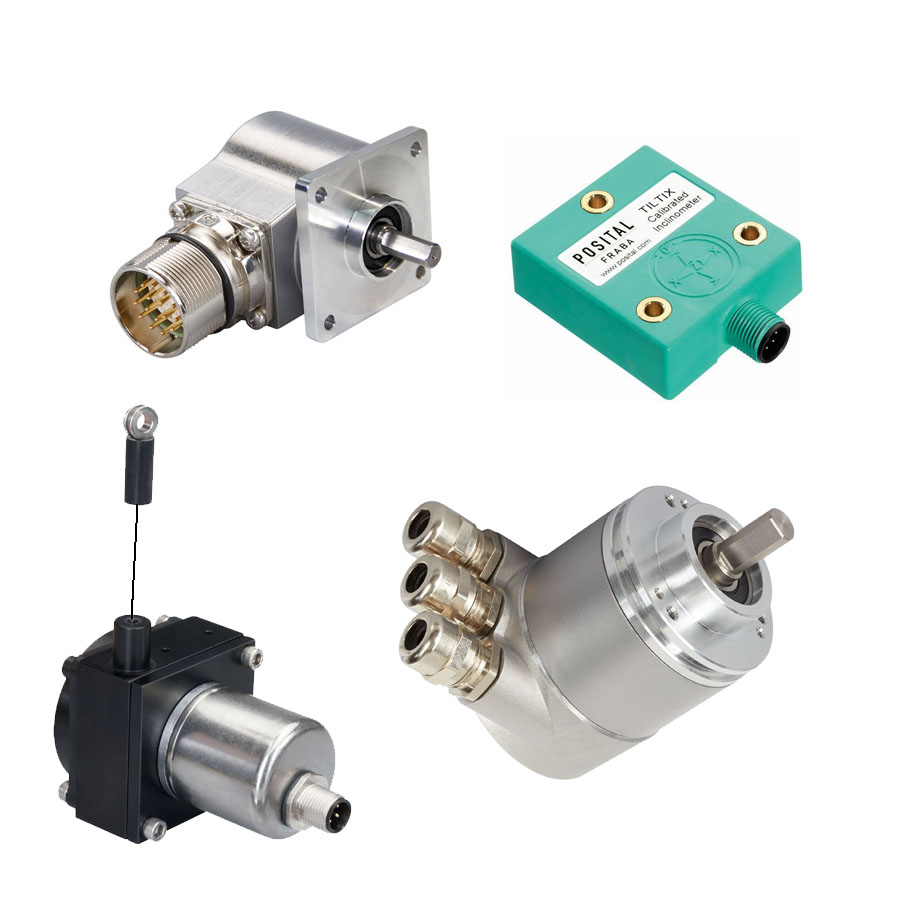Please be aware we use cookies to make your experience better. A cookie is a piece of data stored on a visitor's hard drive to help us improve your access and identify repeat visitors. Cookies can also enable us to track and target the interests of our users to enhance the experience on our site. Usage of a cookie is in no way linked to any personally identifiable non-public information. Learn more.

POSITAL FRABA is renowned for its position and motion sensors that are custom-engineered to meet a wide range of applications. Their product line, filled with precision and reliability, is equipped to handle diverse industrial requirements.
Posital specializes in the following areas:
- Rotary Encoders: With an array of absolute encoders - optical and magnetic - as well as incremental encoders, POSITAL FRABA's solutions are designed to offer precise shaft rotation measurement. The diverse range allows for tailored solutions, suitable for an array of applications.
- Inclinometers: Designed to provide exceptional accuracy, POSITAL FRABA's inclinometers can precisely measure the tilt angle of objects relative to gravity. They are especially useful in situations where quality control is paramount.
- Linear Position Sensors: With a focus on offering exact and reliable linear motion measurements, these sensors come in several configurations to cater to varied application requirements.
- Their kit encoders, for direct integration into a motor or machine, offer increased flexibility in design and manufacturing processes. Meanwhile, their accessories range from mounting fixtures to programming tools, ensuring you have all necessary components to streamline your operations.
The CANopen interfaces they offer allow for easy integration into existing controller environments, underscoring POSITAL FRABA's commitment to creating adaptable, user-friendly solutions.
As a Posital Fraba distributor, Electromate supplies a wide range of Posital Fraba encoders & inclinometers among other products. You can browse our selection below or contact us for additional assistance.
Wiegand Effect
POSITAL's rotary encoders are engineered to utilize the principles of Wiegand technology, a physical phenomenon first observed by John Wiegand in the 1970s. Wiegand discovered that a specifically treated piece of ferromagnetic alloy, known as Wiegand wire, responds uniquely to a reversing external magnetic field. It maintains its magnetic polarity until a specific point, after which it quickly switches to the opposite polarity within a few microseconds.
The rapid shift in magnetic polarity generates a current pulse in a nearby copper coil. Interestingly, this occurs without necessitating any external voltage or current application, thanks to the inherent properties of POSITAL's Wiegand sensors. The sensors' material attributes ensure the production of consistent pulses with each switch of the magnetic field polarity.
This characteristic positions POSITAL's Wiegand sensors as an ideal solution for magnetic sensing in low-power and energy-efficient applications, given their ability to produce consistent, reliable results without additional power inputs.
Pulse Energy Harvesting
The consistent pulse production of Wiegand sensors also has a unique utility in energy provision for ultra-low power electronics. A single pulse is capable of operating such electronic systems. Moreover, successive pulses can be stored and used later to balance the energy demand of low-power circuits.
In another practical application, these pulses can serve as triggers to activate or 'wake-up' circuits that are powered intermittently. This functionality expands the sensor's applicability beyond just magnetic sensing.
There's also the potential to leverage both the magnetic sensing and energy harnessing capabilities of these pulses simultaneously. For instance, the energy from the pulses could power ultra-low power circuits that, in turn, use the pulse timing to execute specific tasks, such as counting event data. This dual functionality enhances the overall efficiency and versatility of applications integrating POSITAL's Wiegand sensors.
Products
 | ACS-020-2-SC00-HE2-PMStatic Measurement, 2 Axes, ± 20°, 4-20mA Request Quote | View Details |
 | ACS-020-2-SC00-HK2-PMStatic Measurement, 2 Axes, ± 20°, 4-20mA Request Quote | View Details |
 | ACS-020-2-SV00-HE2-PMStatic Measurement, 2 Axes, ± 20°, 0.5-4.5V Request Quote | View Details |
 | ACS-020-2-SV00-HK2-PMStatic Measurement, 2 Axes, ± 20°, 0.5-4.5V Request Quote | View Details |
 | ACS-020-2-SV10-HE2-PMStatic Measurement, 2 Axes, ± 20°, 0-5V Request Quote | View Details |
 | ACS-020-2-SV10-HK2-PMStatic Measurement, 2 Axes, ± 20°, 0-5V Request Quote | View Details |
 | ACS-040-2-SC00-HE2-PMStatic Measurement, 2 Axes, ± 40°, 4-20mA Request Quote | View Details |
 | ACS-040-2-SC00-HK2-PMStatic Measurement, 2 Axes, ± 40°, 4-20mA Request Quote | View Details |
 | ACS-040-2-SV00-HE2-PMStatic Measurement, 2 Axes, ± 40°, 0.5-4.5V Request Quote | View Details |
 | ACS-040-2-SV00-HK2-PMStatic Measurement, 2 Axes, ± 40°, 0.5-4.5V Request Quote | View Details |
 | ACS-040-2-SV10-HE2-PMStatic Measurement, 2 Axes, ± 40°, 0-5V Request Quote | View Details |
 | ACS-040-2-SV10-HK2-PMStatic Measurement, 2 Axes, ± 40°, 0-5V Request Quote | View Details |
 | ACS-060-2-SC00-HE2-PMStatic Measurement, 2 Axes, ± 60°, 4-20mA Request Quote | View Details |
 | ACS-060-2-SC00-HK2-PMStatic Measurement, 2 Axes, ± 60°, 4-20mA Request Quote | View Details |
 | ACS-060-2-SV00-HE2-PMStatic Measurement, 2 Axes, ± 60°, 0.5-4.5V Request Quote | View Details |
